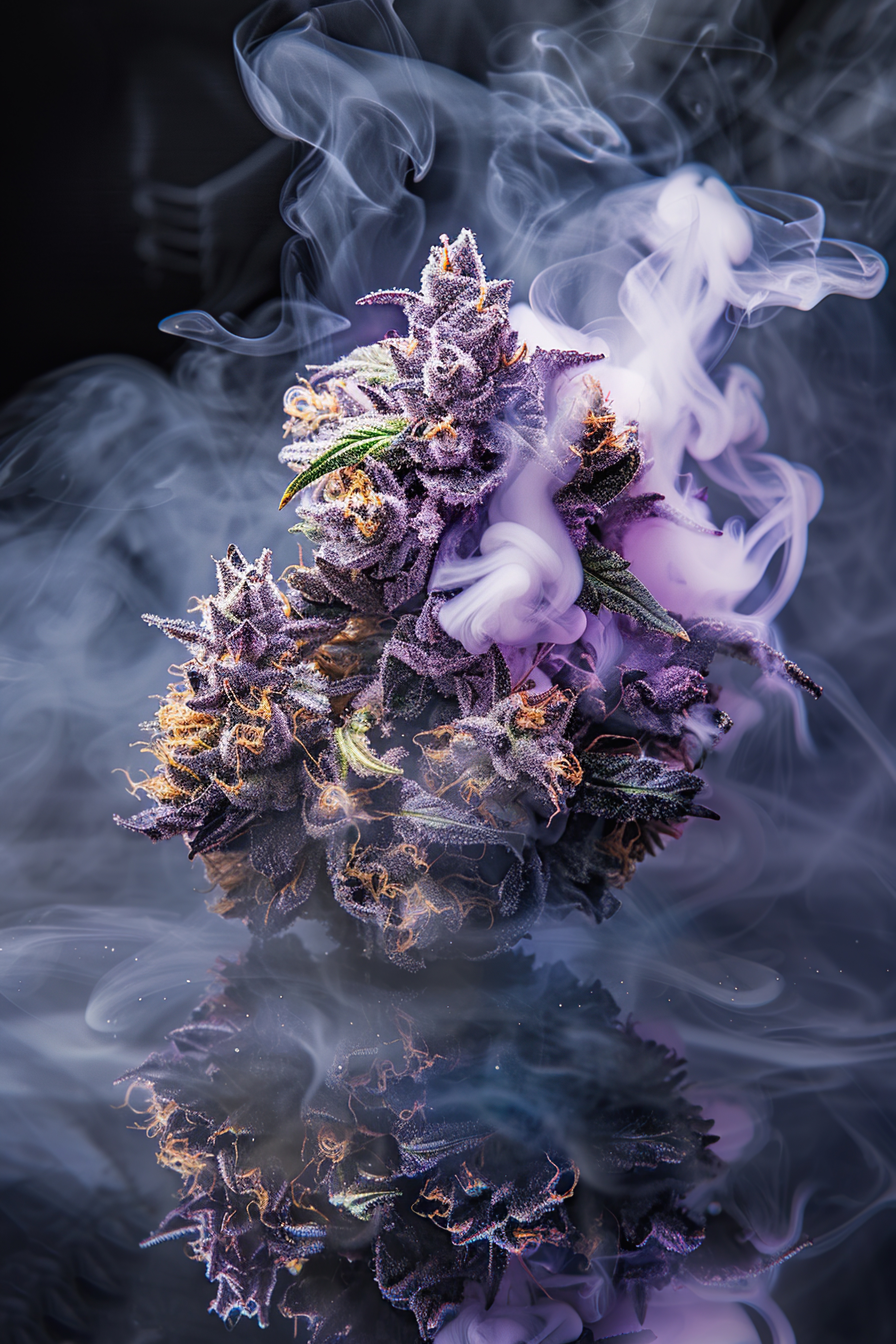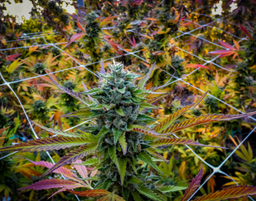THCa to THC: What You Need to Know About This Crucial Conversion

Published September 12, 2023
The cannabis plant contains a wide variety of cannabinoids, but two of the most important are THCa (tetrahydrocannabinolic acid) and THC (tetrahydrocannabinol). While often spoken about interchangeably, these compounds are not the same. THCa is the raw, non-psychoactive form found in fresh cannabis, while THC is the well-known compound responsible for the euphoric “high” many associate with marijuana. Understanding how THCa converts into THC, and the unique benefits of each, is essential for both recreational and medical cannabis users.
What is THCa?
THCa is the acidic precursor to THC, found in raw or unheated cannabis flower. Because of its carboxyl group, THCa does not readily bind to the body’s cannabinoid receptors, which is why it does not produce intoxicating effects on its own. Instead, it has attracted attention for potential therapeutic properties such as anti-inflammatory, anti-nausea, and neuroprotective benefits.
People seeking cannabis wellness without intoxication often use THCa by juicing raw cannabis, blending it into smoothies, or adding it to salads. This allows them to access the cannabinoid’s benefits while avoiding psychoactive effects. However, THCa is chemically unstable: once heat or prolonged storage is introduced, THCa begins to break down and convert into THC.
What is THC?
THC is the psychoactive compound most associated with cannabis use. It’s created when THCa undergoes decarboxylation — a process triggered by heat. Whether you light a joint, vape flower, or bake cannabis into edibles, heat removes THCa’s carboxyl group, turning it into THC that binds to CB1 receptors in the brain. This interaction causes the familiar euphoria, altered perception, appetite stimulation, and relaxation cannabis users experience.
THC also carries well-documented medical applications. Patients and recreational users alike turn to THC for pain relief, nausea reduction, appetite stimulation, sleep support, and stress relief. But its psychoactive properties can also lead to side effects, such as anxiety, paranoia, or impaired motor function when taken in high doses.
THCa vs THC: Key Differences
Although THCa and THC share a nearly identical molecular structure, their effects and applications are very different. Here’s a breakdown:
- Psychoactivity: THCa is non-intoxicating in raw form. THC produces euphoric and psychoactive effects.
- Chemical Structure: THCa contains a carboxyl group that prevents strong receptor binding. THC does not.
- Medical Potential: THCa shows promise in areas like inflammation, nausea, and neuroprotection. THC is widely used for pain, sleep, and appetite stimulation.
- Consumption Method: THCa is consumed raw or in unheated preparations. THC is activated through smoking, vaping, or cooking.
- Legality: THCa flower derived from hemp (with less than 0.3% Delta-9 THC by dry weight) is federally legal in the U.S. THC is still regulated at the state level.
The Role of Decarboxylation
Decarboxylation is the critical process that unlocks cannabis’s intoxicating potential. Without it, raw flower contains mostly THCa, not THC. Decarboxylation occurs when cannabis is:
- Smoked or vaped: Instant heat rapidly converts THCa to THC, delivering immediate effects.
- Baked or cooked: Edible preparations activate THCa slowly during the cooking process.
- Stored improperly: Over time, light, air, and heat can cause gradual decarboxylation even without direct flame.
This conversion explains why THCa flower is technically legal until it’s burned. The chemical transformation happens only once heat is applied, creating psychoactive THC.
Potential Therapeutic Benefits of THCa
Though research is still early, THCa shows potential in several health-related areas:
- Anti-inflammatory: Could help manage arthritis, autoimmune conditions, and chronic pain linked to inflammation.
- Neuroprotective: Promising studies suggest benefits for brain health and conditions like Alzheimer’s or Parkinson’s disease.
- Anti-nausea: May ease nausea for chemotherapy patients or individuals with chronic conditions.
- Appetite support: Like THC, THCa may stimulate appetite, useful in wasting disorders.
- Pain management: Some anecdotal reports suggest pain relief without the psychoactive side effects of THC.
Because THCa does not produce intoxication, it’s being explored as a safer alternative for patients who need therapeutic relief without impairment.
Is THCa Potent?
When people ask about THCa’s potency, it’s important to clarify: THCa itself is not potent in the psychoactive sense. Its strength comes from its potential medical benefits. Once decarboxylated, however, THCa converts into THC, and the potency depends on the strain’s cannabinoid and terpene profile. High-THCa hemp flower, once smoked, can deliver effects similar to state-regulated marijuana.
THCa and Drug Testing
Standard drug tests do not specifically target THCa. Instead, they look for THC metabolites like THC-COOH in urine or blood. However, because THCa easily converts to THC when heated, using THCa flower can still cause a positive drug test. Even improper storage may result in partial conversion, increasing the chance of detection. For consumers subject to testing, it’s safest to avoid products that may produce THC in the body.
Why THCa Matters in Today’s Cannabis Market
The rise of THCa hemp flower is one of the most important shifts in the cannabis industry. Thanks to the 2018 Farm Bill, hemp-derived products with less than 0.3% Delta-9 THC are federally legal, even if they contain high levels of THCa. Once heated, those flowers convert into THC-rich smoke, providing users with a traditional cannabis experience under hemp law. This loophole has fueled demand across states where marijuana remains prohibited.
For consumers, understanding the difference between THCa and THC is crucial for responsible, legal, and intentional use. Whether you’re interested in non-psychoactive wellness or a traditional cannabis high, recognizing how THCa converts to THC helps you make informed choices.
Texas Cannabis Laws: Frequently Asked Questions (2025)
1) Are CBD gummies legal in Texas in 2025?
Yes. Hemp-derived CBD gummies with less than 0.3% Delta-9 THC are legal in Texas under the state’s hemp law. Popular brands like Wyld, Cornbread Hemp, and Koi offer compliant formulas.
2) Is Delta-9 THC legal in Texas?
Yes, when derived from hemp and limited to ≤0.3% Delta-9 THC by dry weight. That’s why Delta-9 gummies, drinks, and edibles are widely sold despite marijuana itself remaining illegal.
3) Can you buy Wyld CBD products in Texas?
Yes. Wyld CBD and CBN + CBD “sleep” gummies are hemp-compliant and available to Texans when they meet the ≤0.3% Delta-9 limit.
4) What is the difference between THC and THCA in Texas law?
Texas caps Delta-9 THC at 0.3%, while THCA is non-intoxicating until heated. This allows retail sale of THCA flower and pre-rolls that are compliant in raw form, even though heating converts THCA into THC.
5) Are Cornbread Hemp gummies legal in Texas?
Yes. Cornbread Hemp’s full-spectrum gummies contain trace THC within the hemp threshold and are legal to buy in Texas.
6) Are CBN gummies allowed in Texas?
Yes. CBN gummies (often marketed for sleep) are legal if hemp-derived and kept under the ≤0.3% Delta-9 THC limit.
7) What cannabis products are banned in Texas?
High-THC marijuana products (flower over 0.3% Delta-9, traditional dispensary concentrates, and edibles with marijuana-derived THC) remain illegal. Only hemp-derived products under the legal limit are allowed.
8) Can Texans legally order Delta-9 gummies online?
Yes. Texans can order hemp-derived Delta-9 gummies online as long as products meet state and federal hemp rules and include third-party lab testing.
9) Do Texas cannabis laws affect medical marijuana patients?
Yes. Under the Compassionate Use Program, qualifying patients can access low-THC cannabis from registered providers. Many Texans also use hemp-derived CBD, Delta-9, and THCA products for broader access.
10) What’s the future of cannabis legalization in Texas?
Lawmakers continue to debate expanding medical access, regulating or taxing hemp cannabinoids, and whether to legalize recreational use. For now, hemp products ≤0.3% Delta-9 remain legal.
11) Can you travel with CBD gummies in Texas?
Yes. You can travel within Texas with hemp-derived CBD gummies that comply with the ≤0.3% Delta-9 THC limit. Keep items in original packaging and carry proof of lab testing when possible.
12) Are hemp-derived drinks legal in Texas?
Yes. Hemp seltzers and sodas containing compliant CBD or Delta-9 THC (≤0.3%) are legal and commonly sold at retailers across Texas.
13) Is smoking hemp or THCA flower allowed in Texas?
Yes, if the product is hemp-compliant in raw form. Public consumption rules may vary by city; check local ordinances in Austin, Dallas, Houston, and San Antonio.
14) What brands of CBD gummies are popular in Texas?
Wyld, Koi, and Cornbread Hemp are widely searched and purchased in Texas for hemp-compliant gummies.
15) Are THC vapes legal in Texas?
Yes, when hemp-derived and kept ≤0.3% Delta-9 THC by dry weight. THCA vapes are also sold because THCA is not intoxicating until heated, though use converts it to THC.
16) Does Texas allow Delta-8 THC?
Yes, currently. Delta-8 remains available in Texas amid ongoing legal debates. Availability may change as regulations evolve.
17) Can seniors in Texas use CBD or THC gummies?
Yes. Many seniors legally use hemp-derived CBD and low-THC gummies for sleep, discomfort, and relaxation. Start low and go slow with dosing.
18) Are Koi CBD gummies legal in Texas?
Yes. Koi’s CBD and hemp-derived Delta-9 gummies are legal when they meet the ≤0.3% Delta-9 THC limit and include compliant lab reports.
19) Are marijuana dispensaries legal in Texas?
No. Recreational marijuana dispensaries are not permitted. Texans use hemp shops and online stores for compliant products or the state’s medical program for low-THC items.
20) Where can I buy legal CBD and THC gummies in Texas?
You can shop online (e.g., Pro Cannabis) or visit local hemp retailers. Always verify third-party lab tests and ensure products meet the ≤0.3% Delta-9 THC requirement.

